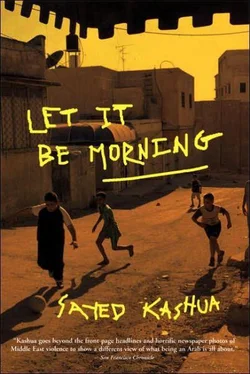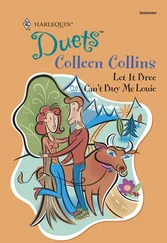“We have barely half a carton left,” I lie to her. “Not enough for the baby for even one more day.”
“Please, just two tablespoons,” she says. “For my little one. She’s starving.”
A crowd is gathering at the entrance to our house, watching the drama unfold. “We don’t have any,” I tell her. “I wish we did.” I speak louder to make sure they can all hear me. I know perfectly well that if I give her any, even a small amount, if won’t end there. Everyone’s going to want some. “You don’t understand.” By now I’m shouting. “Leave us alone. You’re the last thing we need now.” But she persists. The short, overweight neighbor who never visited us — and we never visited her either — is suddenly convinced that we owe it to her to give her some food. It isn’t a request anymore, it’s a demand, a right we’re depriving her of. “But I saw you had food,” she yells, well aware that everyone is listening. “If I hadn’t seen it, I might believe you.”
“And I’m telling you this is all we have. Our daughter has nothing left after this bottle.”
Now my entire family joins me outside, except for my wife — the one who’s really to blame for this new development, but I can’t really take it out on her. “What do you want?” my father intervenes now. “Go away. What is this, a public spectacle?”
“Give her some milk,” someone in the crowd shouts, and I recognize the voice of the polite grocery store owner, whom we’ve known for many years. “You bought out half the store yourself,” he yells, and the neighbor confronting us draws strength from this reinforcement. She looks determined, with no intention of leaving before her demand is met. Her eyes are mean, and I get the feeling that her real aim isn’t so much to feed her children as to increase her supply of food. Hungry children cry, and we haven’t heard any of hers crying yet.
Dozens of people are standing around, waiting for the show to run its course. The neighbor yells something that we can’t make out, curses and tries to force her way into our house. “I’ll get it myself,” she yells. I grab her fat body and try to stop her. She’s very strong and I have a hard time restraining her.
“Get the hell out of here, you lunatic,” I shout, and push her backward, but she tries again. More people are approaching the door now, trying to get in as well. My heart is pounding. My brothers block the entrance as the number of trespassers grows. I can’t keep them out and they’re going to break into the house. I feel stifled and flushed. With one hand, I push away the ugly neighbor and hate her more than anything in the world. And I think about my wife and how I’m going to let her have it later. I clench my fist, lower my right hand and shove it as hard as I can into the neighbor’s stomach. She recoils in pain, grasping her middle. I can hear myself scream.
Mother gets behind us, cursing at the top of her lungs and brandishing a broomstick. I take it from her and use it to push away anyone who comes near us. I would never have thought myself capable of using such force. I’ve never had to be violent before. I push children down on the ground. I force my way to the front, leaving my brothers behind, and charge at the crowd, which keeps growing, though only a few of them actually try to get inside the house. I wave the stick at them and shout, “I’ll kill you. I’ll bury anyone who tries to get any closer.” And I pounce on them with the stick. It deters them a bit and they retreat. “Get out of here, you dogs. We have nothing. You should be ashamed of yourselves.”
Now my younger brother comes out and takes his place by my side with a spade in his hand, threatening to hit anyone who dares come closer. Some of the people start throwing stones at us and at the house. One of the stones hits me in the hand, and I stand there in a puddle of sewage feeling the pain in my hand and watching the stones fly in our direction. I know I have nothing to lose. Not that I have much time to think, but instead of the stones scaring me they only make me more angry and I run toward the stone-throwers, with my brother close behind. I yell as loud as I can and smash the broomstick down on the back of a little boy, who falls into the sewage. The others retreat, but the barrage of stones grows stronger and they’re hitting me all over, but that doesn’t stop me either. One of the stones hits me right in the mouth, and I lunge ahead.
A heavy round of shots causes everyone to stop. The people facing the house bend over and put their hands to their ears. They’re no longer throwing stones. I turn my head and see that my brothers are bending over and covering their ears too. I’m the only one still standing there, with my stick, breathing heavily, my chest rising and falling faster than ever and the blood dripping from my mouth onto my shirt. Two of the armed thugs from the morning’s victory march form a barrier between me and the crowd. They wave their weapons high in the air and shout, “What’s going on here? Enough!” And the crowd, ready to obey the new forces in control, shout out, “They have food.”
One of the armed guys, who’ll never miss a chance to fire, lets loose another round, and the other one shouts, “Quiet.” The one who appears to be their leader asks me what happened, and I explain that they tried to break into our house because they thought we had food. I calm down and speak to him with the respect due to a new master. I find I talk more simply in the hope that he’ll understand me better. “They have no shame, trying to break into a house full of women and children. My wife is inside, trying to feed our baby to get her to stop crying, and these people just break in. They have no consideration.” I know that to our new leaders shows of respect and honor are very important. “People have no shame anymore,” my father adds from behind me.
“They have food,” the grocery store owner shouts again. He’s facing them now. “The guy you’re talking to bought out half my store. He knew before everyone that there would be a war. People at his newspaper must have told him.” I shake my head. “I got ready just like everyone else,” I say quietly to the armed guy facing me, who has no idea what to do but still feels obliged to impose order. He’s even enjoying it. “If you do have food, you’ve got to share some of it,” he says. “People are starving to death. Give away some of it, okay?”
“Okay,” I say, and put down my stick. I realize I have no choice. There have already been break-ins at the homes of people who are considered wealthy. We’re not in that category, of course, but nothing is going to stop these people, who are convinced we lack for nothing. “All right,” I say again, speaking louder. “There isn’t a single piece of bread in my parents’ house. It’s all in my house.”
As soon as they hear this, the crowd starts running as fast as they can toward the new houses behind my parents’. The two men shooting in the air don’t deter them this time and they break into a wild gallop, bending over but continuing the race for the loot. The armed men follow, trying to get things under control. I turn around and, looking at my family, I see how sorry they’re feeling for me. We hear the sound of the door breaking, which doesn’t disturb us too much. Children and adults run out with big smiles on their faces, carrying sacks of rice, sugar, salt, coffee and flour. They break into my brother’s house too, but don’t find as much. We don’t need any of those things. Whatever we could use we moved to my parents’ house in the morning. I sit down on the front steps and look at the people. Most of them I recognize. They’re from our neighborhood, after all, some of them close neighbors. The commotion soon dies out, and everyone moves away, probably looking for the next arena. The two armed men come back to me. “I’m sorry,” the leader says. “We wanted you to share some of it, but they got it all. Don’t worry, I know the ones who took it, and we’ll bring some of it back. You have my word. And we made sure they didn’t take any of the furniture or appliances. The only thing they took is food. Don’t worry, we’ll be back.”
Читать дальше












